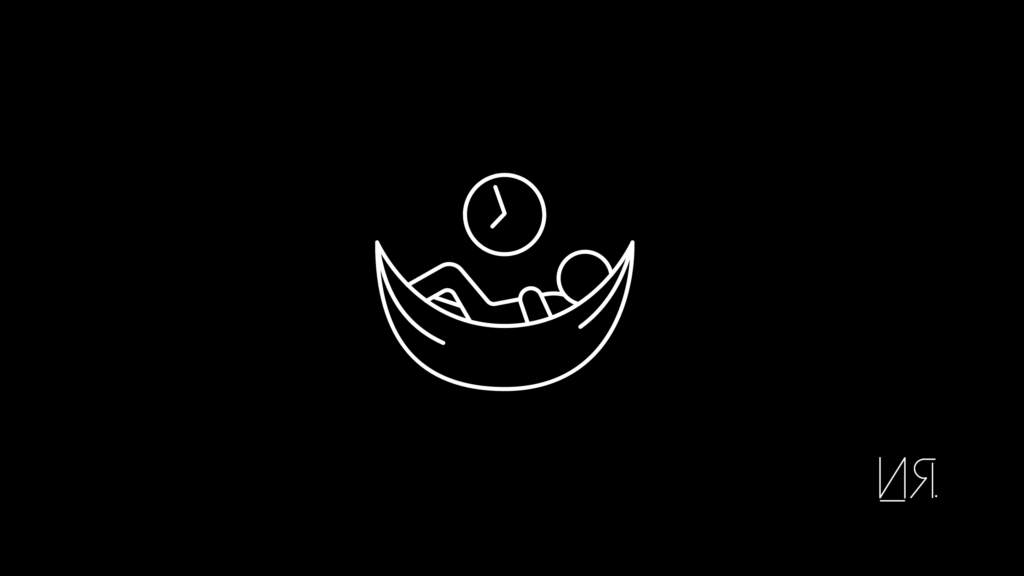Do you work to live or do you live to work?
In 2022, I spent 4 months in Paris. Talk about that work-life balance. They know how to draw the line between work and life.
Swinging back to America later in the year – and boom – it was like capitalism was having an existential crisis – again.
Always acting like it’s about to die.
So we stoke the flame and feed the beast.
Munch. Munch. Munch.
More productivity.
More. More. MORE.
I’m not going to bore you with productivity because I want to talk about something way more important – LEISURE!
What are you up to?
“So what are you up to these days?” a question I get asked by a few acquaintances.
“One day, you’re writing…another day, you’re making music…next you’re talking about NFTs. Are you still running your business too?”
People act like it’s impossible to pursue multiple interests.
Here is the problem – people think leisure is just for children.
The older I got, the more I heard things like “you need to get serious.”
We’ve been indoctrinated with the productivity virus to use our “time wisely.” This virus doesn’t actually help us be productive.
That’s why my corporate peeps are always tired.
Entrepreneurs are always busy.
Artists are always in a daze.
After the 9 – 5, they say go develop your 5 – 9 to liberate yourself from the drudgery of the rat race.
All this wheel-spinning. When does it end?
Feelings of stuffiness are amplified on the daily as you and I continue to search for purpose and meaning.
So once anyone brings up something like leisure, your brain is quick to respond, in defense of your comfort: “Oh no, I don’t have the luxury to partake in hobbies.”
The reality is leisure is not a “nice to have”, it’s a “must have.”
Hobbies don’t take away from your career, they actually add to it.
Leisure is more than just going on vacation, it is tapping into your creative, social, and political imagination.
It leads to growth and unearths your full-self.
You have to find your personal rhythm of the leisure and productivity cycle.
Leisure is not just “time off”, it’s real work.
4 Ways to Rethink Leisure
Detaching from the intensity of work is a process that does not happen overnight.
Prioritizing your pursuit of leisure can feel counterintuitive. It goes the opposite direction of what some of us have been taught for years.
Once you find your balance of leisure and productivity, the benefits become clear.
You’ll tap into what psychologists call “positive self complexity.” This internal complexity will help you deal with the growing complexity of the external world.
You will detach your self worth from just performance at “one job” and expand your imagination to have a more meaningful experience with life.
Here are 4 ways to start rethinking leisure to find your own rhythm.
1. Leisure is social and political imagination
True leisure is real work.
Leisure is using your time to challenge the productivity status quo.
I remember reconnecting with a friend from high school. We both shared a love for music.
A decade and a half since we last spoke, I was excited to tell him that I was making beats. His response caught me off guard: “Ah, only rich people have time to make music”
At that point in my entrepreneurial journey, that was the lowest amount of income I had made in years.
In fact, he was probably making 10 times what I was making (no joke) but he was convinced that I only had time for leisure because I had secured finances either from productivity or inheritance.
Neither was the case. I was just on my journey to build real leisure in my life and break the cycle that every pursuit must be linked to financial returns.
On the other side of the productivity coin is what I’ll call “productivity disguised as leisure”
It’s fake leisure in the form of slowing down.
“Slowness”, as Jenny Odell states in her book Saving Time, is sold to us by social media influencers with updates of their lives away from the productive cycle.
The reality is they can only live that life at the expense of the people paying attention to them.
Their “time-off” is paid by someone’s “time-on.”
It is known that marketers can target people with low self-esteem on these platforms with the “slow soft life” that these influencers peddle like drugs in your digital corners.
In reality, they are just maintaining the status quo.
True leisure on the other hand is not necessarily about “time off”. It’s about experiencing life away from the productivity loop.
Leisure is having the space for your creative, social, and political imagination to flourish, so you can challenge the status quo.
It does not have direct financial returns.
This can be walking in the park, being “unproductive”, making art, carving furniture, organizing communities for a cause.
The reality is – it’s still some type of work. The real work of finding your full self.
What sparks your imagination? What helps you go against the productivity cycle in your main line of work?
Investigate it because that could be your form of leisure.
2. Leisure is detaching
Your career needs a hobby to thrive.
How many times have you gone on a vacation, just to get back to work and say: “I need a vacation from my vacation.”
As much as we love to complain about work draining us, a lot of us find it hard to detach from work.
Work brings order to your life.
It comes with schedules, boring meetings, and deadlines. All these things have the recipe to “tell you when to go.”
Taking time off? Woah!
What am I going to do with this time off?
Oh no, I’m sure they are pinging me?
Did I finish that task before I left?
Survey shows that even when we get on vacation, we don’t stop working.
Most of us feel productivity guilt.
That need for productivity is so embedded, that your vacation becomes – events on events. Activities on activities.
The reality is that the corporation will keep rolling on without you.
I mean….how many people from work will show up at your funeral if you dropped dead today?
I know. Morbid thought, huhn?
Sorry, I’m just letting my imagination wander here!
The older we get, the more we sharpen the tools that help put food on the table – our careers.
Hobbies make you a more well-rounded person and can actually boost your career.
If your career is the marathon, then your hobbies are like cross training. They help you cross-pollinate ideas that allow you detach and then thrive in your work.
As you pick up and nurture a hobby, here is a litmus test:
1. Is it conventionally different from your actual work?
2. Is it challenging?
3. Does it make you feel aspirational?
If it’s one of the three then you’re doing good. If it’s all three. That’s great.
“We do not know how to stop ourselves from working and it’s impacting our job effectiveness as well as our health and happiness”
~ Karen MacFarlane Holman, PhD
Nurture a hobby that will pull you away from your career to help you thrive in it.
3. Leisure is about complexity
Leisure helps you match complexity.
Making music helped me get more comfortable with entrepreneurship.
Everytime I made a beat from scratch was a practice in discomfort with the process and comfort with the outcome – which wasn’t always great.
It’s the same mindset that helped me deal with the uncertainty of building a business.
Apparently a lot of business leaders partake in this form of serious leisure too.
The most notable in recent years is David Solomon, the 61 year-old CEO of Goldman Sachs. He closes deals in the day and matches musical tempos as a DJ at night.
Pssst….
Listen up. This is a secret that the elite don’t want you to know.
You keep this between me and you. OK.
You ready?
The powers that be Looooove leisure.
They just don’t want YOU to love it too, because they need you on the clock.
Research shows that CEOs in public facing companies take up on hobbies because it allows them to be something else outside of their role.
Beyond the extra self-confidence, creativity, and improved communication skills, pursuing hobbies also leads to what psychologists call “positive self-complexity.”
According to the American Psychology Association , self complexity “is the number of separate, unrelated aspects of the self-concept.”
For instance, a woman might think of herself in terms of her various social roles (engineer, friend), relationships (colleague), activities (running, writing), traits (driven, creative), goals (career success), and so forth.
People with low self complexity have extreme reactions to positive and negative events related to the main thing they define themselves as.
While people with high self complexity react less to such events.
AKA
People with high self complexity do not put all their self worth in one basket.
Each one of us have different sides of ourselves and leisure gives us the space to connect these sides.
The world is getting more complex.
Partaking in serious leisure helps build your internal complexity to deal with the growing complexity of the world.
“we need complexity inside to manage the complexity outside”
~ Emilia Bunea, Leadership Educator, Financial-services-CEO-turned-researcher
Become more complex to simplify how you deal with the external complexities of the world.
4. Leisure is different for everyone
One person’s leisure is another person’s ____show.
You fill in the blank. (Hint: the word rhymes with ‘it’ and starts with ‘s’)
On a business trip in Krakow, I thought I was experiencing the same leisure of sightseeing like my fellow tourists until I was stopped by passport ???? control and asked: “hello, what are you doing in Poland?”
Just a week before this stand-off, my colleague had challenged me to be “more adventurous.”
He was an older colleague from Louisiana. During business trips, his adventures took him to countries, where he’d find spots to go skydiving.
I wasn’t skydiving but he was like “Come on Nifemi, let’s go shake things up.”
We had explored Krakow together.
Drinking some nice Polish vodka (Zubrowka was my favorite)
Taking in the scene.
I thought I’d do it again.
But as Jay-z said: “It was all good just a week ago.”
This time my colleague wasn’t there with me.
This time the so-called leisure had changed dynamics.
This time leisure led to myself and two other Africans being detained for 6 hours for “walking around without our passports”
So what is leisure?
It means something for everyone.
A leisure stroll down the street for a black person in America is not leisure if they feel danger at every corner.
As a guy, I can confidently walk down the avenue, but for a woman, that same walk can turn into a dreaded avenue of “cat-calls”
We all have different circumstances. One person’s leisure can be speaking up against oppressive systems. Another person’s leisure might be going for hikes.
Find your own leisure and do what makes you happy.
Final thoughts
Work to Live to Work to Live to Work to Live.
It’s the yin-yang of leisure and productivity.
You don’t work to live. You don’t live to work. That’s the linear approach to life.
I think of it as a cycle – constantly feeding into one another. You have to find your balance, which will change from one season to the other.
Find your leisure by prioritizing it and detaching from productivity guilt. Come to terms with your own definition of leisure. Does it pass your litmus test?
Remember, that one person’s leisure is another person’s dread.
But don’t expect this time for leisure to be given to you. You have to make time for it.
Go find your own leisure-productivity rhythm and incorporate it in your own life.
Go do the real work.



